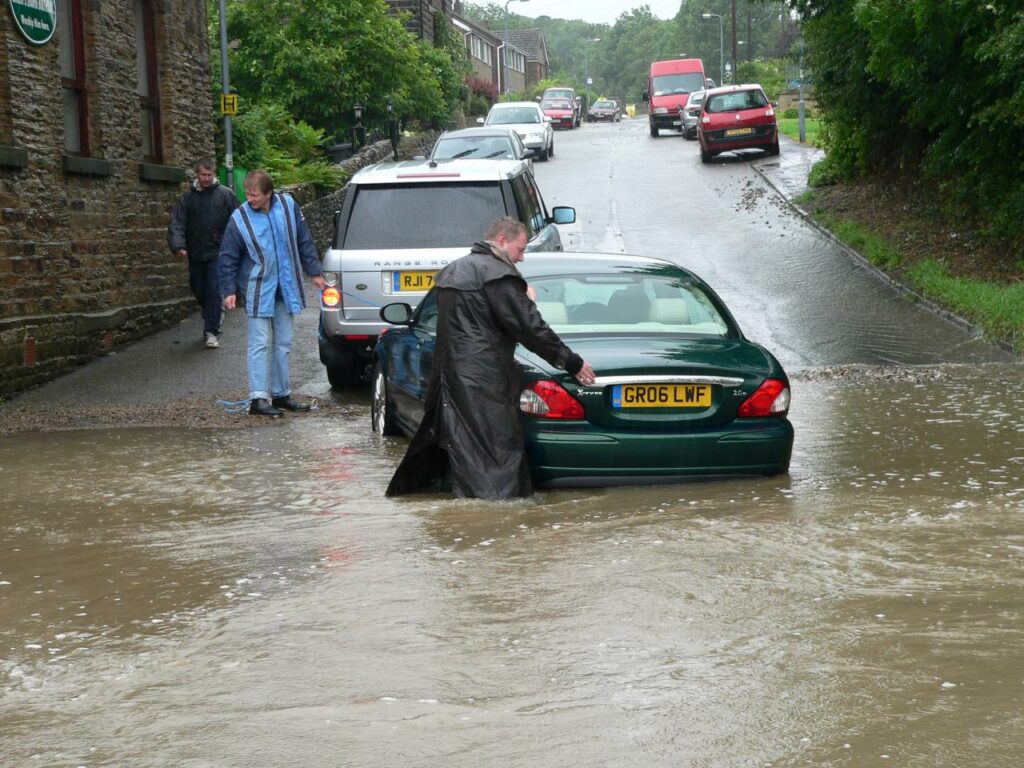Tackling the climate crisis: does philanthropy have what it takes?
By Max von Abendroth & Karalyn Gardner, Dafne
The consequences of global warming are all too visible already now. This year, we all saw the images of effects of the climate crisis around the world: flooding destroyed lives and livelihoods, heat fires devastated villages, farms and forests, storms and heavy rain wiped out crops. The IPCC report published this summer emphasised that global warming is undeniably caused by human activity and laid bare that we are unlikely to keep warming below this target of 1.5°C despite political commitments, such as the Paris Agreement in 2015. Yet if we act now and with sufficient urgency, we can still mitigate excess warming and by extension unnecessary human suffering and death.
Does philanthropy have what it takes?
In Max’s blogpost for Alliance Magazine in April 2021 titled “A call to philanthropy to be bold. Now.” we reflected on the opportunity for foundations to act in response to the climate emergency. There is a role for philanthropy to play: as convener, accelerator, bridge builder and funder. In fact, their response is crucial, since foundations have such a unique bridge building role across governments, corporations, civil society and science, a coalition that is key to meet the climate targets.
However, this only works if foundations themselves live up to the climate challenge. We have seen outstanding transformations across the philanthropy field with some foundations in Europe, such as the IKEA Foundation, Laudes Foundation and Stiftung Mercator, who are today at the forefront of climate action. Encouragingly, the number of foundations committed to climate action is constantly growing, as the more than 300 signatories of the #PhilanthropyForClimate movement with its national and international climate commitments clearly indicate.
Pillars of the International Philanthropy Commitment on Climate Change
- 1. EDUCATION & LEARNING
- 2. COMMITMENT OF RESOURCES
- 3. INTEGRATION
- 4. ENDOWMENT & ASSETS
- 5. OPERATIONS
- 6. INFLUENCING & ADVOCACY
- 7. TRANSPARENCY
The climate challenge is complex and needs to be addressed in many different ways. Its cross-cutting nature puts the climate issue at the heart of foundations’ mission areas such as social justice, health, arts & culture, education and, as such, it affects the funding of programmes, the investment of assets and the operations of each foundation. This is already reflected across the #PhilanthropyForClimate movement – of the 300 signatories of the national and international climate commitments, the mission of more than two thirds is not directly related to climate and environment. Yet, how can we accelerate this transformation across the sector?
“It is the unique role of philanthropy infrastructure organisations to support their foundation members to live up to their climate ambitions by providing foundations with a safe space for meaningful peer exchange, giving access to climate and philanthropy experts, tools and methodologies”
In this face of such complexity and urgency, it is the unique role of philanthropy infrastructure organisations to support their foundation members to live up to their climate ambitions by providing foundations with a safe space for meaningful peer exchange, giving access to climate and philanthropy experts, tools and methodologies that help implementing the climate strategy in an effective way and inviting foundations to start collaborating.
This is a key moment for philanthropy infrastructure to inspire, guide and support the sector






“Philanthropy infrastructure” is the fabric of our ecosystem. Thanks to more than 60 philanthropy networks across Europe brought together in PEX, foundations and donors can connect and collaborate, drive collective impact, break thematic silos more easily and build bridges to relevant partners. Each of these elements is essential to mobilise the potential of the wider philanthropy field to tackle the climate crisis.
“By positioning the climate challenge as a priority topic for the philanthropy sector, foundations find it easier to join a movement, steered by the association they trust, rather than starting the climate journey on their own.”
By positioning the climate challenge as a priority topic for the philanthropy sector, foundations find it easier to join a movement, steered by the association they trust, rather than starting the climate journey on their own. Building on the collective experience of national associations of foundations in the UK (ACF), France (CFF), Spain (AEF) and Italy (Assifero) as hosts of national climate commitments, as well as Dafne and WINGS as initiator and host of the International Commitment respectively, the Philanthropy Coalition for Climate is in a position to share some key findings about how philanthropy infrastructure organisations could inspire, guide and support their foundation members to become committed “climate foundations”.
Firstly, associations have a unique role in inspiring foundations to apply the climate lens across all their activities. Conveying to foundations’ boards and staff the climate urgency by embedding it across the associations’ communications, sharing scientific evidence and good practices for foundations’ climate action through events, blog posts and one-to-one engagement, creates an inspiring environment for climate action. This zone of comfort is key to mobilising climate action across an important part of the foundation sector. The Philanthropy Coalition for Climate provides regular updates of the communications campaigns made available for associations across Europe. Regular “open house” climate workshops allow members to sneak-in and get a first glimpse of what becoming a “climate foundation” is about. This is how philanthropy associations can make it easy for members to imagine their own way of embracing the climate challenge.
Réveil Climat by the French Coalition of Foundations for Climate (CffC)
CffC hosts a series of early morning webinars for interested foundations on a wide range of themes that intersect with climate. These one-hour events generally include an introduction to the topic followed by testimonials by a number of foundation representatives and relevant experts. Topics covered so far include: “One Sustainable Health”, Active Philanthropy’s “Funding the Future Guide”, Women & Climate, Climate Justice and Climate Education.
Secondly, philanthropy infrastructure is well positioned to empower foundations to act on climate. Climate philanthropy is complex: providing members with professionally facilitated spaces for collective learning by making online learning programmes or workshops with climate philanthropy experts available, is an effective way to help foundations to understand how they can approach their climate journey. Experience shows that offering a safe space for foundations to learn from each other‘s experiences about how to best implement the climate commitment and how to drive climate action in their respective field of expertise is accelerating the implementation. Directing foundation members to the national and/or international climate commitments as a low barrier entry into and framework for climate action is another key for initiating a sector-wide movement. Associations play an important role in guiding and inspiring foundations to apply the climate lens on investments of their endowments, funding programmes, operations and the resources they commit.
Intersectional peer groups by the Philanthropy Coalition for Climate (PCC) and Active Philanthropy
The PCC and Active Philanthropy are setting up pan-European peer groups for funders and foundations to explore integrating a climate lens across a variety of funding areas. These peer groups aim at collective learning, imagining and collective & individual action. The health & climate peer group first meets on 28 September and is co-hosted by Stiftung Mercator.
Finally, to inspire and empower foundation members on their climate journey, any association of foundations has to build its own capacities. This includes ensuring that its team is aware of the climate emergency and the related foundation needs and able to orchestrate a variety of activities to stimulate climate action and support their foundation members. The Philanthropy Coalition for Climate organises regular peer exchanges for climate leads within associations with the aim of strengthening such capacities. A collectively curated climate & philanthropy knowledge hub is available as one of the best open sources for climate updates and relevant background studies for the philanthropy sector. Furthermore, the coalition offers access to climate and philanthropy expert networks and a pool of resources, such as tool kits for climate communication that can be openly shared with foundation members of philanthropy associations Moreover, the Philanthropy Coalition for Climate keeps the foundation sector linked up with science, civil society, business and politics.
Learning stream on climate by the Association of Charitable Foundations (ACF)
ACF hosts regular events in line with the pillars of the UK Funder Commitment. This is an opportunity for some signatories to present to their peers how they have integrated this commitment to climate action across their work. The events are also open to non-signatory ACF members who are interested in learning more about what foundations are doing on climate. These sessions are complemented by regular signatory-only meetings, which are an opportunity for signatories to connect with each other, collectively troubleshoot, and find out about the support ACF offers.
“Today, an increasing number of foundations is actively applying the climate lens to everything they are doing, most of them using the national or international funder commitments as a starting point for their climate journey.”
The Philanthropy Coalition for Climate was set up in September 2020 to create a powerful movement for change to encourage and empower philanthropy to drive bold climate action in Europe and beyond in collaboration with partners like Active Philanthropy, the Climate Leadership Initiative, WINGS, the EU Climate Pact and many others. Today, an increasing number of foundations is actively applying the climate lens to everything they are doing, most of them using the national or international funder commitments as a starting point for their climate journey. Encouragingly, climate funding is increasing due to the overall awareness of the urgency and the shared understanding that the need to act is greater than ever. Moreover, today we have a wide range of tools, experts and knowledge at hand that is accessible for foundations to help them successfully navigating their climate journey. #PhilanthropyForClimate is the name of this global movement that enables foundations to live up to the climate challenge.
Photo credit: Geoffrey Buta / Climate Visuals Countdown

Max von Abendroth
Executive Director of Dafne
@bxlmax

Karalyn Gardner
Project Officer at Dafne
@GardnerKaralyn



